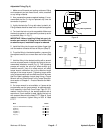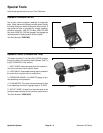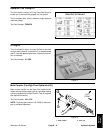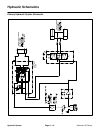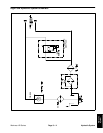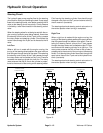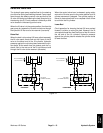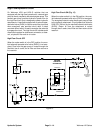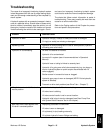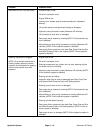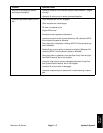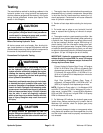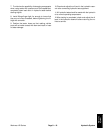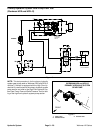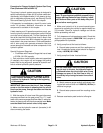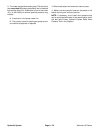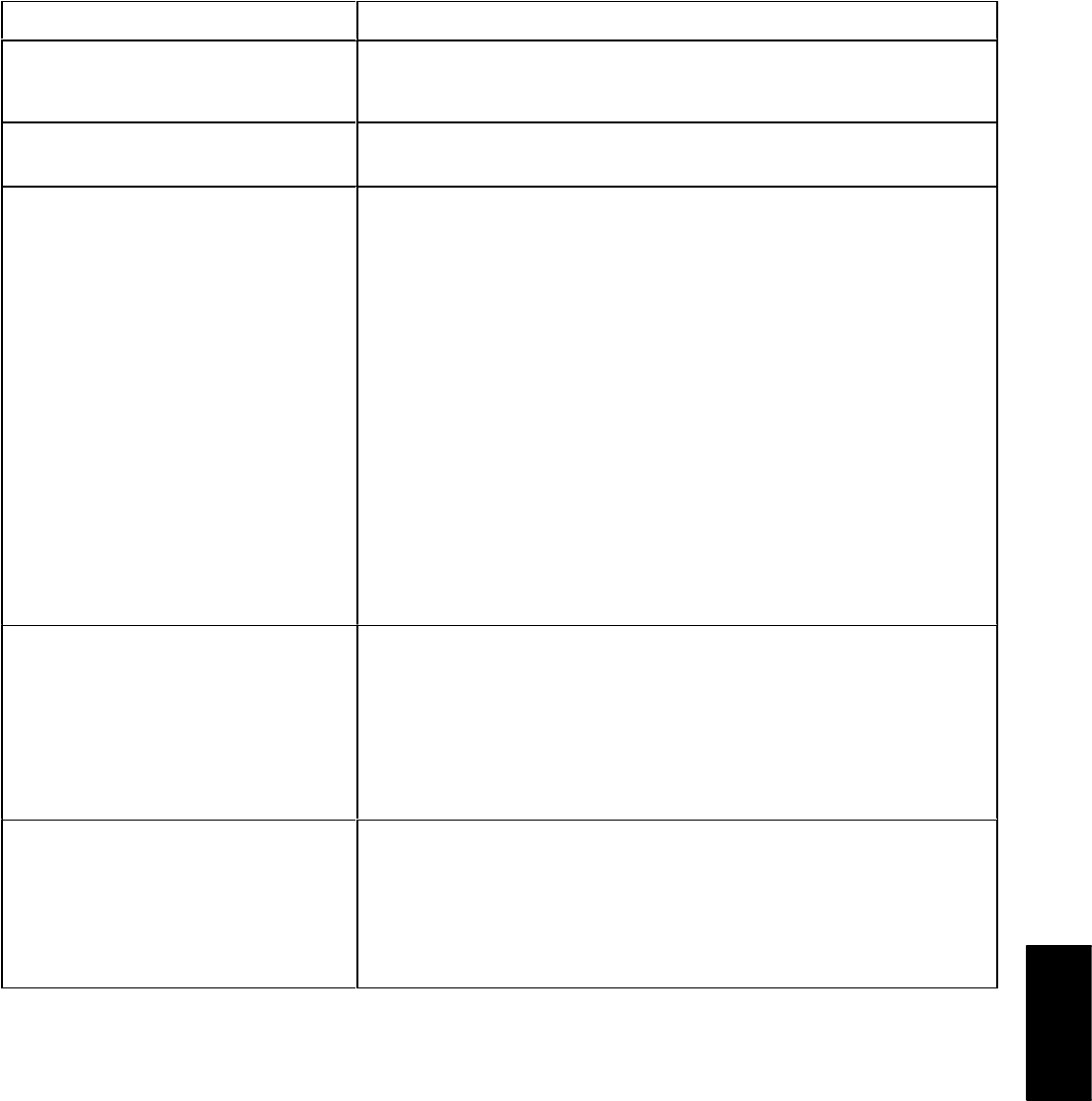
Workman HD Series Page 9 − 15 Hydraulic System
Troubleshooting
The cause of an improperly functioning hydraulic system
is best diagnosed with the use of proper testing equip-
ment and a thorough understanding of the complete hy-
draulic system.
A hydraulic system with an excessive increase in heat or
noise is a potential failure. Should either of these condi-
tions be noticed, immediately stop the vehicle, turn off
the engine, locate the cause of the trouble and correct
it before allowing the vehicle to be used again. Contin-
ued use of an improperly functioning hydraulic system
could lead to extensive internal component damage.
The charts that follow contain information to assist in
troubleshooting. There may possibly be more than one
cause for a vehicle malfunction.
Refer to the Testing section of this Chapter for precau-
tions and specific test procedures.
Problem Possible Cause
Hydraulic oil leaks. Hydraulic fitting(s), hose(s) or tube(s) are loose or damaged.
O−ring(s) or seal(s) are missing or damaged.
Squealing noise. Hydraulic lift valve is being held in raise or lower position (hydraulic
oil flowing over relief valve).
Hydraulic oil is overheating. Oil level in transaxle is incorrect.
Hydraulic oil is contaminated.
Incorrect oil in system (see oil recommendations in Operator’s
Manual).
Hydraulic hose or tubing is kinked or severely bent.
Hydraulic oil is going over relief valve excessively (e.g. too heavy a
load on hydraulic system or quick coupler disconnected with lift
valve engaged).
Suction screen in transaxle is loose or clogged.
Hydraulic gear pump is worn or damaged (NOTE: Entire hydraulic
system is affected).
Transaxle or drive train problem (see Drive Train − Chapter 7).
Lift cylinders extend with lift valve in
neutral position.
Load checks in hydraulic lift valve are leaking.
Lift valve lever is sticking.
Lift valve control handle is not in correct location.
Hydraulic relief valve is stuck or damaged (see Gear Pump Flow
and System Relief Pressure Test in this chapter).
Bed drops from raised position with
lift valve in centered position.
Improperly positioned lift valve lever.
Lift valve is worn or damaged.
Lift cylinder(s) is (are) leaking externally.
Lift cylinder hydraulic lines or fittings are leaking.
Hydraulic
System



